Your Pregnancy at Week 29
Science photo library
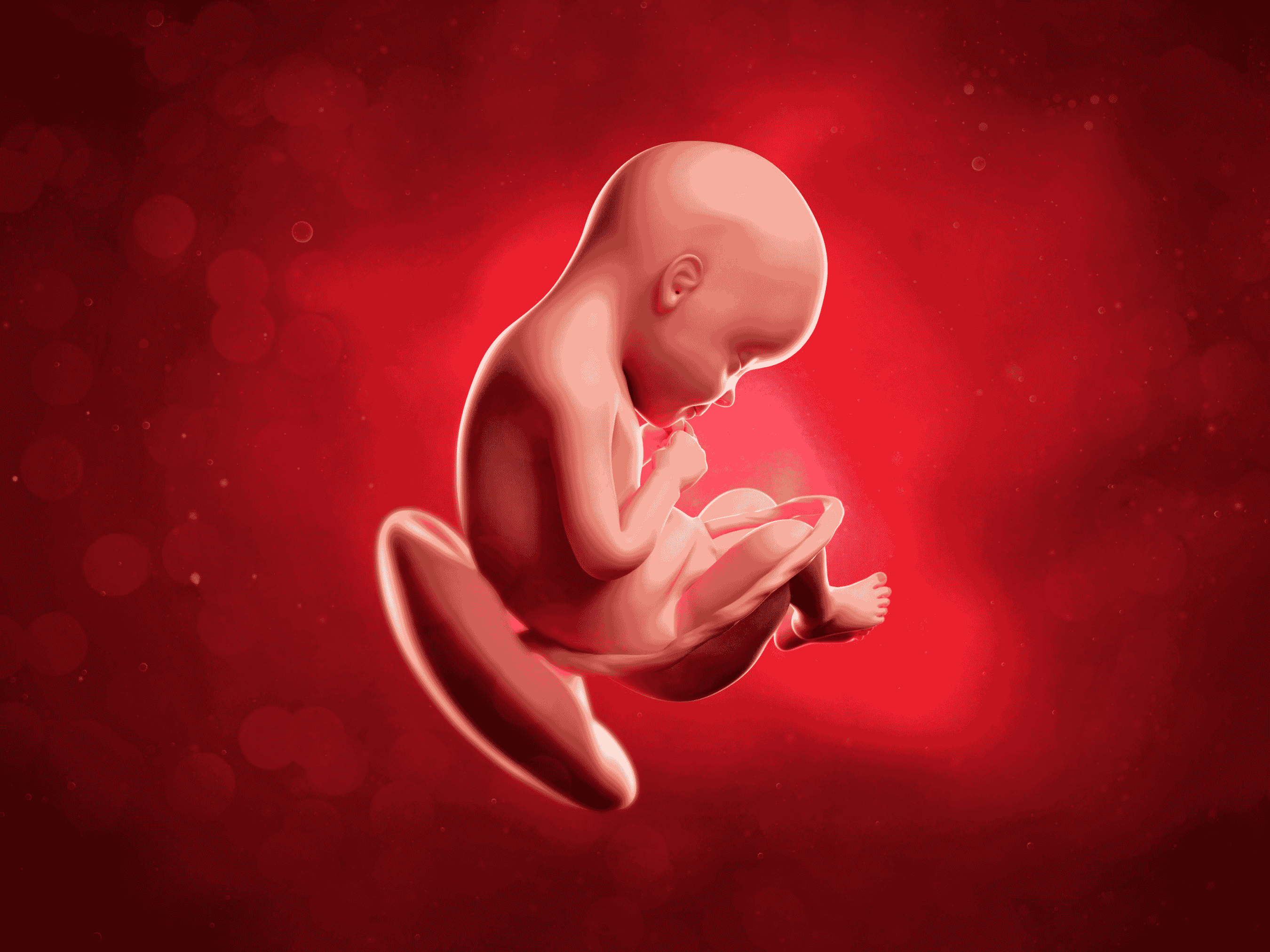
Written by Mindsmaking Medical Writer
Fact Checked by Mindsmaking Professionals
2nd, December, 2025
At 29 weeks pregnant, your baby gains weight and strengthens bones, which may cause extra tiredness.
At the 29th week of your pregnancy, your baby continues to gain weight with added fat and muscle. They also strengthen their little bones, which may tire you. When this happens, you don't need to panic. All you have to do is increase your iron and calcium intake.
Key Takeaways
The brain is rapidly developing, building connections between nerve cells, and starting to control essential functions like breathing and body temperature regulation.
Your baby measures around 15.2 inches and weighs about 1153 grams, comparable to a butternut squash.
You might feel breathless because your baby pushes against your lungs, and the extra weight strains your body.
At 29 weeks pregnant, your uterus has expanded significantly and may be positioned midway between your navel and breasts. Your fundal height could be around 29 centimetres.
Your growing uterus can push your stomach and diaphragm against your lungs, making breathing hard.
Reduced bladder muscle tone during this trimester can slow urine flow, increasing the risk of UTIs. Consult your GP or midwife if you have pain during urination, back pain, or flu-like symptoms.
Adequate rest is crucial to reduce stress, maintain energy, and support efficient resource allocation to you and your baby.
Manage stress with techniques like prenatal yoga, meditation, or relaxation exercises.
This week is an ideal time to start organising support from friends and family after the baby arrives.
Take a peek

Head Growth and Brain Development
The baby's head is growing due to rapid brain development that started around week 28. This growth is crucial for cognitive and neurological functions.
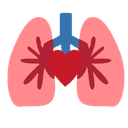
Lung Maturation
Your baby's lungs develop further, preparing for the breathing and movement needed after birth.

Hormone production
Your baby's adrenal glands are producing a hormone called oestriol to stimulate the production of prolactin in your body.
Baby Development at Week 29
Your baby likely doesn't feel so small anymore. Measuring about 15.2 cm from head to heel, they are now roughly the size of a butternut squash. Over the course of your pregnancy, your baby has transitioned from a tiny cluster of cells to a fully formed human being. Now, their main job is to continue growing, getting stronger and heavier in preparation for birth. While their major organs are almost fully developed, their lungs still need more time to mature for independent breathing.
Your baby's skin has been covered in a white, greasy substance called vernix, which protects it from drying out due to prolonged exposure to amniotic fluid. A layer of downy hair, known as lanugo, has been keeping them warm. From around 29 weeks onwards, your baby will start to lose this hair, and the vernix coating will gradually thin as they near their due date. If your baby is born early, the vernix may be quite noticeable, but there may be very little left if they arrive late.
If your baby is born with vernix on their skin, it's beneficial not to rush to wipe it off. Vernix is believed to have antimicrobial properties that can help protect your baby from infections. It also helps keep their skin hydrated and prevents it from drying out. (4)
At this point in your pregnancy, your baby's head has grown proportionate with the rest of its body, marking a significant developmental milestone. The brain is rapidly developing, becoming faster and more powerful. It is building connections between nerve cells and starting to control essential functions like breathing and body temperature regulation.
Your baby is also becoming more sensitive to external stimuli such as light, sound, taste, and smell. This increased sensitivity is crucial to their sensory development, preparing them for the world outside the womb.
Additionally, your baby's adrenal glands are producing a hormone called oestriol. This hormone is thought to stimulate the production of prolactin in your body, which is responsible for initiating and maintaining milk production after birth. This preparation is essential for breastfeeding and ensuring your baby gets the nourishment they need once they're born.
Mindsmaking
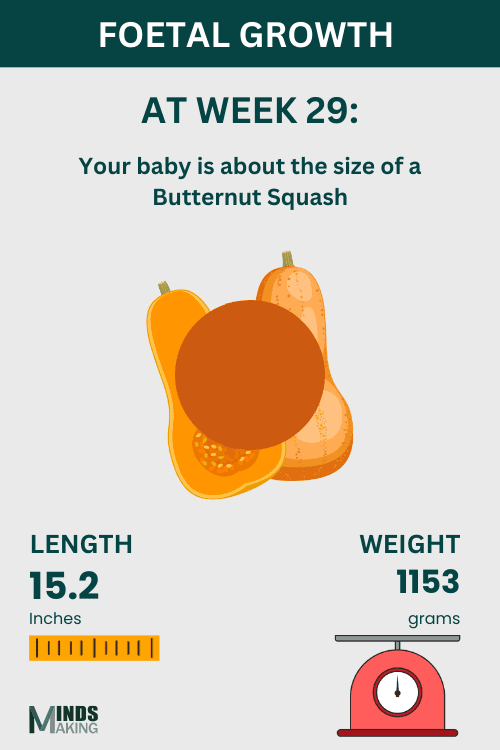
Body Changes at Week 29
You might feel breathless because your baby pushes against your lungs, and your extra weight strains your body. It's understandable if you feel irritated when people tell you to enjoy your sleep while you can, as getting comfortable and resting well can be quite difficult right now. You might also experience leg cramps and need to go to the bathroom more often at night due to the baby pressing on your bladder.
Babies tend to be very active just as you're trying to sleep, and their sleeping and waking patterns may not match yours. It's important to know your baby's activity patterns and contact your midwife or hospital if you notice any changes or if the movements stop.
Try to rest whenever possible during the day, and when sleeping, it's best to lie on your side with a pillow under your bump and another between your legs for support. If you feel too tired to cope, ask your midwife or doctor for help and advice. (5)
You may feel like you're on an emotional rollercoaster right now, which is normal as you experience various feelings about the journey ahead. Alongside the excitement of meeting your baby, you might feel worried about how you'll cope and even sad if a loved one isn't around to meet your new arrival. All these feelings are valid; you'll feel better talking about them with a friend or loved one. Additionally, sharing any nerves or anxieties with your midwife is important so you can receive the right advice and support.
Read This Next
No posts available
Baby Bump At Week 29
At 29 weeks pregnant, your uterus will have expanded significantly and may be situated midway between your navel and breasts. If your healthcare provider measures your fundal height, the distance from your pubic bone to the top of your uterus could be around 29 centimetres. This growth in your bump can cause discomfort, which is common throughout the third trimester.
You'll notice many kicks inside your belly as your baby feels crowded and remains active due to surging energy levels. It's important to continue doing kick counts daily to ensure your baby's activity levels are consistent. Typically, your baby should move about 10 times within an hour. If you haven't felt your baby move in a while and you're starting to worry, try drinking some ice water, playing music, or lying down on your side for a massage from your partner. These activities often wake the baby up. Call your doctor for further evaluation if you're ever concerned about foetal activity.
Pregnancy Symptoms at Week 29
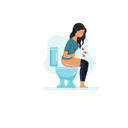
Constipation
Constipation is a common symptom you might experience this week, often accompanied by abdominal pain, gas, and hard stools. To alleviate it, ensure you drink plenty of water and go to the toilet when you first feel the urge, as delaying can worsen the problem. While it might be tempting to take a laxative for relief, always consult your doctor before using any laxative or medication during pregnancy; they might suggest an over-the-counter product. Natural remedies like consuming a high-fibre diet (20 to 25 grams daily), staying hydrated, and regular exercise can also help.
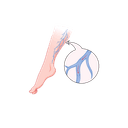
Varicose veins
Another symptom you might experience this week is varicose, most commonly found in the legs, appearing blue or dark purple and often looking lumpy, bulging, or twisted. While uncomfortable, they are generally not harmful and rarely require treatment. However, you should consult a GP if they cause pain, discomfort, or irritation. Some people may develop varicose veins around their vagina, which should not impact childbirth, but it's important to inform your doctor or midwife if you have them.

Heartburn
As your baby and womb expand, they can push against your stomach, leading to heartburn. Heartburn occurs when stomach acids are pushed up into your throat, causing a burning sensation. To manage this, try eating small, frequent meals and avoid caffeine, fatty, and spicy foods, as these can exacerbate heartburn. If these measures don't help, consult your midwife or doctor, who can prescribe pregnancy-safe medication to relieve the symptoms.

Shortness of breath
At this stage of pregnancy, your growing uterus isn't leaving much space for your other abdominal organs, causing your stomach and diaphragm to press up against your lungs. As a result, your lungs don't have as much room to expand, making breathing hard around 29 weeks pregnant. Practise good posture to help your lungs get the breathing room they need. Move more slowly and avoid overexertion to catch your breath. If you experience any chest pains at 29 weeks pregnant, do not ignore this symptom. Call your healthcare provider for advice.

Lightheadedness
You might occasionally feel lightheaded or dizzy due to changes in your cardiovascular system. Your heart rate increases, your heart pumps more blood per minute, and your body's total amount of blood rises. Your growing uterus also puts pressure on veins and slows circulation to the lower half of your body, causing you to feel lightheaded, dizzy, or even faint. To prevent these sensations, ensure you eat and drink regularly, avoid overheating, don't stand up too quickly, lie flat on your back, or overexert yourself with exercise. Call your healthcare provider if you experience persistent lightheadedness, frequent dizziness, or other concerns.

Migraines or headaches
Headaches and migraines, which may have been frequent during your pregnancy, could become more likely if you're dehydrated or sleep-deprived. Dehydration reduces the amount of blood flowing to your brain, while lack of sleep can cause stress and tension, leading to headaches. Low blood sugar can also trigger headaches, so eating regular, balanced meals is important to maintain stable blood sugar levels. Staying hydrated, getting adequate rest, and eating consistently can help manage and reduce these headaches.
Pregnancy Concerns at Week 29
During this trimester, you are more susceptible to urinary tract infections (UTIs) because the muscle tone of your bladder has been reduced. This reduction means your urine flow slows down, giving bacteria more time to multiply in the bladder. It's crucial to consult your GP or midwife if you experience symptoms like pain when passing urine, back pain, or flu-like symptoms. If left untreated, a UTI can lead to a kidney infection, increasing the risk of premature labour.
Around this time, there's a higher risk of developing preeclampsia, which can also occur earlier in pregnancy or postpartum. Preeclampsia primarily involves elevated blood pressure and may affect liver and kidney function. It's crucial to attend all doctor appointments to monitor for this condition.
If you check your blood pressure at home, know your healthy baseline to spot sudden increases. Symptoms of preeclampsia include unusual swelling in the legs, puffiness in the face, persistent headaches, blurred vision, or nausea and vomiting. If you experience any of these symptoms, seek medical attention immediately, as preeclampsia can be life-threatening for both mother and baby.
Health Tips for Week 29
Rest and get enough nutrients
Given the extensive development happening at this stage, you need to support this growth by ensuring you get plenty of nutrients and rest. Nutrients like protein, vitamin C, folic acid and iron play specific roles in this development. Protein is vital for muscle growth, vitamin C aids in tissue repair and the immune system, folic acid is crucial for brain and spinal cord development, and iron supports increased blood volume and oxygen transport. Adequate rest is important because your body works hard to support the baby's development. Rest helps reduce stress, maintains energy levels, and allows your body to allocate resources to you and your growing baby efficiently
Get enough calcium
At this stage of pregnancy, as your baby continues to grow and get ready to meet you, their bones are hardening significantly. This process relies on calcium; your baby needs about 200 mg of calcium to be deposited in their skeleton daily. This calcium comes from your intake, so you must consume enough. A small glass of milk provides roughly 200 mg of calcium, or you can have a 150g pot of plain yoghurt. If you're intolerant to dairy or follow a vegan diet, you need to get about 700mg of calcium from fortified plant-based milk to meet your needs. This ensures you and your baby have sufficient calcium for healthy bone development.
Drive safe
Pregnancy doesn't mean you should stop wearing your seatbelt in the car. It's crucial for both your safety and your baby's. Position the lap belt to rest across your thighs and hips, under your bump, rather than across the middle of it. The diagonal strap should go over your collarbone, between your breasts, and be fastened above your bump. Take regular breaks to avoid swelling in your legs and ankles for long journeys, similar to precautions on a plane. If you experience backache, placing a cushion in the small of your back can help alleviate discomfort.
Practice relaxation techniques
If you're feeling a bit stressed, it might be helpful to explore some relaxation techniques. While some pregnancy-related stress is normal, constant anxiety isn't something you should endure daily. Practising prenatal yoga or meditation can be an effective way to relax. Your healthcare provider can offer guidance on safely practising yoga during the last trimester. Learning to relax both body and mind at 29 weeks can help lower blood pressure, reduce muscle tension, and ease lower back pain, making you more comfortable in the final weeks of pregnancy. Other ways to reduce stress include getting a massage, journaling, or listening to your favourite music while resting.
Avoid raw eggs
When consuming eggs, ensure they are cooked thoroughly. The whites should be firm, and the yolks should start thickening. This is crucial to avoid the risk of salmonella, which can cause food poisoning. Use pasteurised eggs to reduce this risk for dishes like salad dressings, sauces, or mousse desserts containing raw eggs. Additionally, avoid eating raw cookie dough or cake batter. While it might be tempting, raw eggs in these mixtures can also pose a risk of foodborne illness. Steering clear of raw egg-containing foods is a good practice for overall food safety, regardless of pregnancy.
Advice for Partners
As your partner is planning how to handle her labour and deciding who to have present during the delivery, you need to discuss the role you want to play during the birth. Consider whether you are squeamish (feeling uneasy or faint at the sight of the birth process, which can involve blood, bodily fluids, and intense physical activity) if you want to be the main support person for your partner, and if you are committed to attending childbirth classes to learn how to provide the best support. An expecting mum needs to know in advance what the plan is for labour and what she can expect from you. Discussing this now gives you time to plan, make arrangements, and ensure you both feel prepared for the birth.
Pregnancy Checklist for Week 29
- Let your healthcare provider know if you plan to bank your baby's cord blood. Cord blood is collected from the umbilical cord and placenta after birth and is rich in stem cells, which can be used to treat various medical conditions. Be sure to include the cord blood kit in your hospital bag.
- If you work, it's time to consider your maternity leave. Policies vary globally, but some allow leave to start at 29 weeks. Now is the perfect time to finalise your leave plans and consider child care and recovery time after birth.
- Now is a good time to tour your birth facility and pre-register for labour and delivery, ensuring a smoother admission process. Write down any questions beforehand to get answers during your visit.
- Support from friends and family is crucial during the first weeks at home with your newborn. Start rallying your support team. Most loved ones are eager to help but need guidance, so don't hesitate to communicate your needs.
Frequently Asked Questions
How big is my baby at week 29?
Your baby is now the size of a butternut squash. They now weigh around 1153 grams. When a snugly fit baby is measured from head to toe, its length is about 15.2 inches.
What is the expected baby position at 29 weeks?
Around this time, your baby will likely turn its head down in your womb in preparation for birth. While about a quarter of babies might still be in the breech position (head up) at this stage, only about 3 to 4 per cent remain breech at full term. You can sometimes tell your baby's position by noticing where the big kicks are compared to the smaller punches. Additionally, larger wriggles can indicate the location of your baby's booty or head, helping you determine their orientation.
Why do I get cramps after sexual intercourse at 29 weeks?
Experiencing cramps after sex at 29 weeks of pregnancy is quite common and usually not a cause for concern. This can be due to increased blood flow to the pelvic area, hormonal changes that trigger uterine contractions, or the physical activity of sex putting pressure on the uterus. Orgasms can also cause the uterus to contract, leading to cramping. Additionally, dehydration might contribute to muscle cramps. While mild cramping is normal, you should contact your healthcare provider if you experience severe pain, persistent cramping, bleeding, or other concerning symptoms to ensure everything is alright.
What are the risks of having a baby at 29 weeks pregnant?
If a baby is born at 29 weeks pregnant, it is considered a preterm or premature birth. Preterm babies are at higher risk for health problems because their development is not yet complete. They typically need to spend time in the neonatal care unit (NICU) to receive specialised care designed to their needs. Healthcare professionals in the NICU will provide comprehensive support and regularly discuss the baby's condition and care plan with the parents. This period of intensive care is crucial to monitor and address any immediate health concerns, helping the baby develop more fully outside the womb.
What should I avoid at 29 weeks pregnant?
Throughout your pregnancy, you've probably received valuable advice and guidelines from your doctor and loved ones. Sometimes, knowing what to avoid is as helpful as knowing what to do. While health recommendations generally stay the same at 29 weeks, you might notice increased pregnancy discomforts as you enter the third trimester. If any symptoms cause concern, don't hesitate to contact your healthcare provider.
Was this article helpful?
How many stars are you giving this article?
Leave a comment
Your email address will not be published.










































